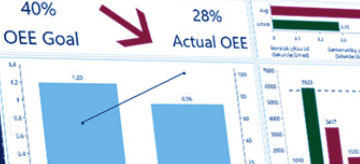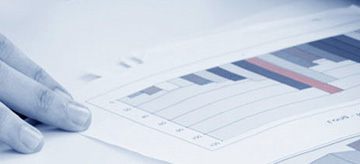A data historian system is a type of database system that is specifically designed for collecting, storing, and retrieving time-series data. It is commonly used in industries such as manufacturing, process control, and utilities, where large amounts of data are generated over time from various sensors, equipment, and devices.
The main function of a data historian system is to automatically collect and store time-stamped data from multiple sources in real-time or near-real-time. This data can then be used for analysis, reporting, monitoring, and optimization of various processes and operations.
Data historian systems are optimized for handling large volumes of data, and often use compression techniques to reduce the storage space required. They also provide various features such as data aggregation, filtering, and querying to facilitate easy access and analysis of the stored data.
Overall, a data historian system provides a powerful tool for organizations to gain insights into their operations, make informed decisions, and optimize their processes for increased efficiency and profitability.
How to use data historian in food processing
Data historians can be used in various ways in the food processing industry to collect, store, and analyze data, such as:
- Data analysis and visualization: Data historians provide a centralized database that can store vast amounts of processed data, making it easier for engineers and operators to analyze and visualize this data. With the help of data historians, they can quickly identify patterns, trends, and anomalies in the data, which can help them make informed decisions about process optimization and quality control.
- Quality control: Food processing plants have strict quality control standards to ensure that their products meet regulatory and customer requirements. Data historians can help to monitor critical parameters such as temperature, humidity, and pressure to ensure that the processing conditions are within the specified range. If any deviations occur, the data historian can alert the operators to take corrective action.
- Process optimization: By collecting and analyzing data over time, data historians can help engineers and operators to identify opportunities for process optimization. For example, they may identify areas where energy consumption can be reduced, or where throughput can be increased while maintaining quality standards.
- Regulatory compliance: Food processing plants are subject to strict regulations regarding food safety and environmental compliance. Data historians can help to monitor compliance with these regulations by tracking key performance indicators such as wastewater discharge, air emissions, and energy consumption.
How to use data historian in meat processing:
- Slaughter: Data historian can be used to monitor the temperature and humidity conditions during the slaughter process. By tracking this data, meat processing plants can ensure that the conditions are optimal for animal welfare and food safety.
- Carcass inspection: Data historian can be used to monitor the carcass inspection process to ensure that the meat is safe for consumption. By collecting data on this step, meat processing plants can identify any defects or abnormalities in the carcass and take corrective action.
- Deboning: Data historian can be used to monitor the deboning process to ensure that the meat is processed according to the standard operating procedures (SOPs). By tracking this data, meat processing plants can identify any deviations from the SOPs and take corrective action.
- Packaging: Data historian can be used to monitor the packaging process to ensure that the meat is properly packaged for transportation and storage. By collecting data on this step, meat processing plants can ensure that the packaging materials are of high quality and that the labeling information is accurate.
- Storage and distribution: Data historian can be used to monitor the storage and transportation conditions of the meat products. By tracking this data, meat processing plants can ensure that the meat is transported and stored in optimal conditions, which can help to maintain the quality and safety of the products.
Why use data historian in food processing plants
Data historians help to streamline the process of gathering and storing data from across the plant. You can use the data to gain insights into every aspect of the plant's operations. With access to this data, you can make informed decisions about production processes, monitor equipment performance, and detect potential issues before they become problems.
Using data historians in process plants can also help increase agility, boost efficiency, and improve profitability in a competitive market. By having a complete picture of the plant's operations, operators can optimize processes, reduce waste, and improve product quality. Additionally, data historians can help with regulatory compliance by storing data related to food safety regulations, labeling requirements, and environmental regulations, making it easier for companies to demonstrate compliance to regulatory bodies.
Overall, data historian can be used in every step of food processing to monitor and control the critical parameters, which can help to maintain the quality, safety, and efficiency of the process. By collecting and analyzing this data, food processing plants can identify opportunities for process optimization and continuous improvement, which can help to reduce costs and improve customer satisfaction.
Want to know more?
At Frontmatec, we specialize in providing software solutions for the food industry, helping our clients increase efficiency and reduce costs. With GO.Historian, you can gain valuable insights into your operations and make data-driven decisions.
If you are interested in hearing more about our data historian solution, please don’t hesitate to contact us. Our team is always available to help and guide you in finding the best solution for your specific needs.

 EN
EN
 English
English
 中文
中文
 Español
Español
 Deutsch
Deutsch
 Français
Français











